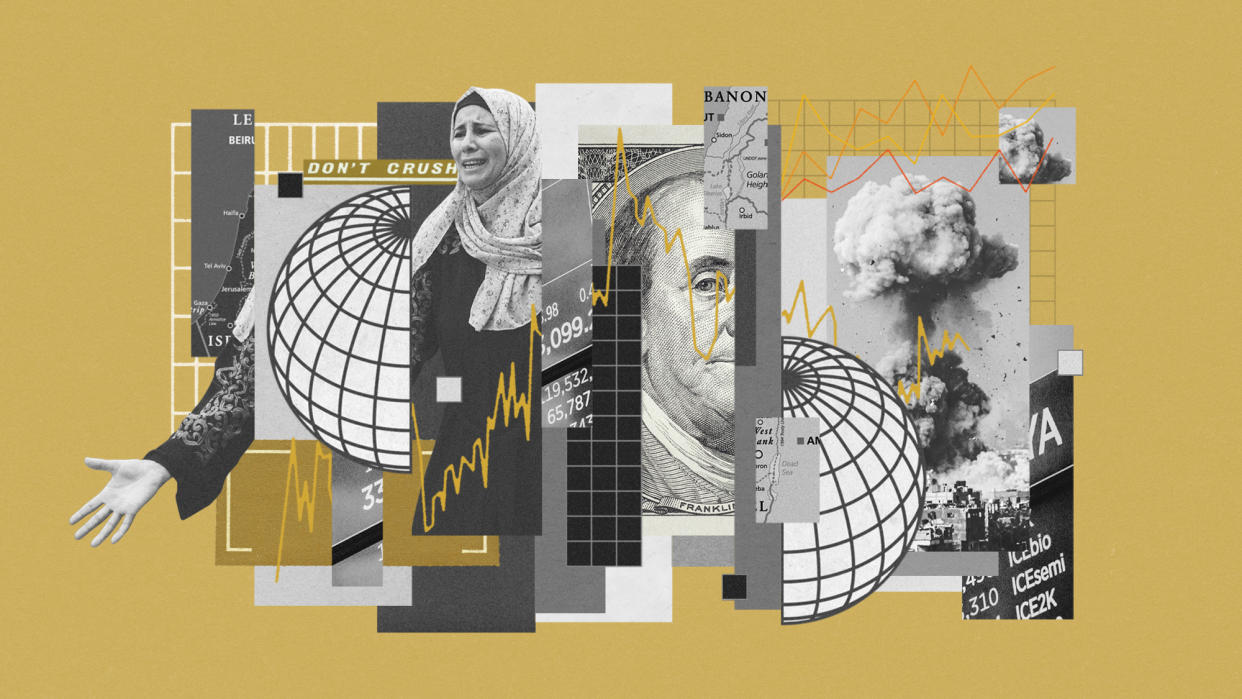How might the Israel-Hamas war affect the global economy?

The war between Israel and Hamas could deal a "serious" blow to global economic development, the president of the World Bank has warned.
Speaking at an investor conference in Saudi Arabia, Ajay Banga said the world economy was now at "a very dangerous juncture" as tensions continue to rise in the region amid fears the conflict could escalate into a regional war – or worse.
Over the past half century, it is "difficult to think of a time when so many dangers from so many directions could each spiral out of control so quickly as is now occurring in the Middle East", said Oil Price.
What did the papers say?
"Warning bells went off in financial markets the instant the extent of the deadly Hamas attack on Israel became apparent," said The Guardian's economics editor Larry Elliott – "and it is easy to see why".
One of the "rules of thumb of geopolitics", he wrote, "is that recessions are sparked by a sharp jump in oil prices, and the cost of crude is sensitive to events in the Middle East".
You only need to look at what happened 50 years ago – when the surprise attacks on Israel by Egypt and Syria started the Yom Kippur War and Israel's subsequent counteroffensive sparked an oil crisis that led to a global downturn – to see the devastating economic implications of a localised war in the Middle East. The world may be less dependent on oil than it was in 1973 but it still matters.
The current conflict has already impacted forecasts for the Israeli economy, said the Financial Times, and saw the price of Brent crude rise beyond $90 a barrel, the gas market reach an eight-month high, and financial markets around the world fall sharply.
It has had a "similar – but so far much less pronounced – effect" on energy markets to Russia’s invasion of Ukraine last year, said The New Statesman. This caused the price of oil to rise immediately to more than $100 a barrel and wholesale gas prices to peak at 10 times their typical levels, sparking rampant inflation, higher interest rates and a cost-of-living crisis.
"There's only so many conflicts you can cope with, in global supply chains, when these conflicts are in areas of significance for raw material supply, like oil and gas," said Henning Gloystein, director of energy, climate and resources at the political risk consultancy Eurasia Group. He added that the 2022 energy crisis cost Europe and the UK in the region of a trillion dollars. "It doesn't take much to get back to where we were a year ago."
What next?
The risk the Israel-Hamas conflict could tip the world economy into recession is "real", said Bloomberg, but depends on whether hostilities remain largely confined to Gaza, spill into neighbouring Lebanon and Syria or – a worst-case scenario – draw in Iran. In all these cases, the "direction is the same – more expensive oil, higher inflation, and slower growth – but the magnitude is different", said the financial news service. "The wider the conflict spreads, the more its impact becomes global rather than regional."
Taken "alongside the realignment of various global alliances", the effect of the conflict on global financial markets will depend on the involvement of other regional powers, agreed Daniele Bianchi, professor of finance at Queen Mary University of London, on The Conversation. If it spreads to major oil-producing nations such as Iran, analysts warn oil prices could reach as high as $150 a barrel, sending inflation back into double digits in the US and Europe. If this leads to a "higher for longer" monetary policy that keeps interest rates elevated, "it would push up the cost of borrowing and refinancing by governments, companies and people", Bianchi said.
Were this to happen, much would depend on Saudi Arabia, the world's biggest oil exporter, and emergency gas supplies from Qatar, which "appear likely to continue under most circumstances" and would "alleviate some short-term price pain in the West", said Oil Price.
Then, said Elliott in The Guardian, "there is the doomsday scenario – sketched out by the historian Niall Ferguson – in which China takes advantage of the crisis" to move against Taiwan, and "escalates a regional conflict in the Middle East into a third world war.
"Even if fought by conventional methods," continued Elliott, "a military conflict between the world's two biggest economies would lead to a severing of global supply chains, a blow to confidence and crashing asset prices." The economic consequences would be "catastrophic", he concluded, "up to and including a second Great Depression".

